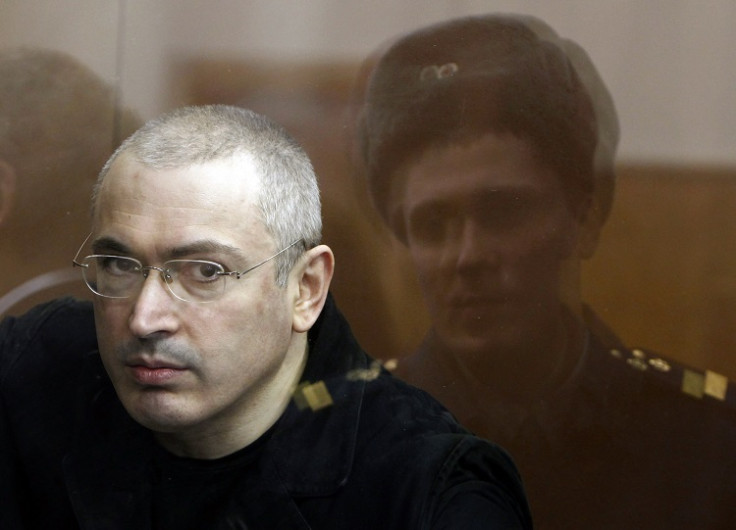Profile of Mikhail Khodorkovsky: The Tale of Modern Russia

President Vladimir Putin has announced that he will pardon Mikhail Khodorkovsky who was jailed in 2005 on charges of corruption, fraud and tax evasion.
Khordokovsky was Russia's richest man at the time of his downfall. Some saw the case as a reminder of Putin's complete power over rivals and upstarts.
So does this sudden pardon of Khordokovsky indicate the Russian leader is softening his attitude?
IBTimes UK decided to take a look at Khordokovsky's back story and the lead up to his dramatic fall from grace.
Name:
Mikhail Khodorkovsky
Age:
50
Nationality:
Russian
Education:
1981- Enters Medeleyev Chemistry Institute.
Family History:
Khodorkovsky is a native of Moscow. His parents were both engineers. He is married and has four children.
Current Position:
Khodorkovsky has been in jail since 2005. He had a retrial in 2009. He has initially held in a penal colony in Siberia but was later was moved to Moscow.
New Position:
If Putin is true to his word then Khodorkovsky will be a free man.
Career Path:
Khodorkovsky's life is the story of modern Russia.
He rose from humble beginnings to become one of the country's great oligarchs whose wealth was made from the country's vast natural resources.
Khodorkovsky was involved in a number of smaller ventures before eventually rising to become head of oil giant Yukos.
He started his business career in the 1980s with a small computer firm under the wing of Komosol (the communist youth movement).
Four years before the collapse of the Soviet Union in 1991, he founded a bank called Menatap bank.
This became one of the first private banks after the collapse of the USSR.
Demonstrating his flair for entrepreneurship, Khodorkovsky branched out in the chaotic and violent gangster capitalism that invaded Russia during the 1990s - and emerged as one of the winners.
His bank allowed him to acquire shares in new companies at bargain prices during a period of rapid privatisation of previously state-controlled resources, not to mention partake in capital flight schemes funnelling billions out of Russia.
By 1994 he acquired fertiliser firm Apatit for $283m (£173.0m, €206.7m) along with with business partner Platon Lebedev, who also entered prison with him.
In 1995 he bought Yukos for a knockdown price of $350m.
Yukos became Russia's second largest oil company after it attracted international investors. This all changed with the retirement of Boris Yeltsin from frontline politics.
Khodorkovsky's political ambitions impinged on those of Vladimir Putin and the new powerbrokers in the Kremlin.
In July 2003 his business partner Lebedev was arrested which was seen as a warning to Khodorkovsky, who was arrested four months later.
Yukos disappeared as legal entity in November 2007. Khodorkovsky was sent to the Chita region in Siberia, some 3,000 miles east of Moscow.
He was held in a Soviet era camp but was later transferred to Moscow in 2009 for a second trial. He faced charges involving misappropriating funds.
He was convicted.
Khodorkovsky's outrageous fortune is seen by many as mirroring that of Russia itself.
What happens to him next will be closely watched by any that take an interest in the country.
© Copyright IBTimes 2025. All rights reserved.






















